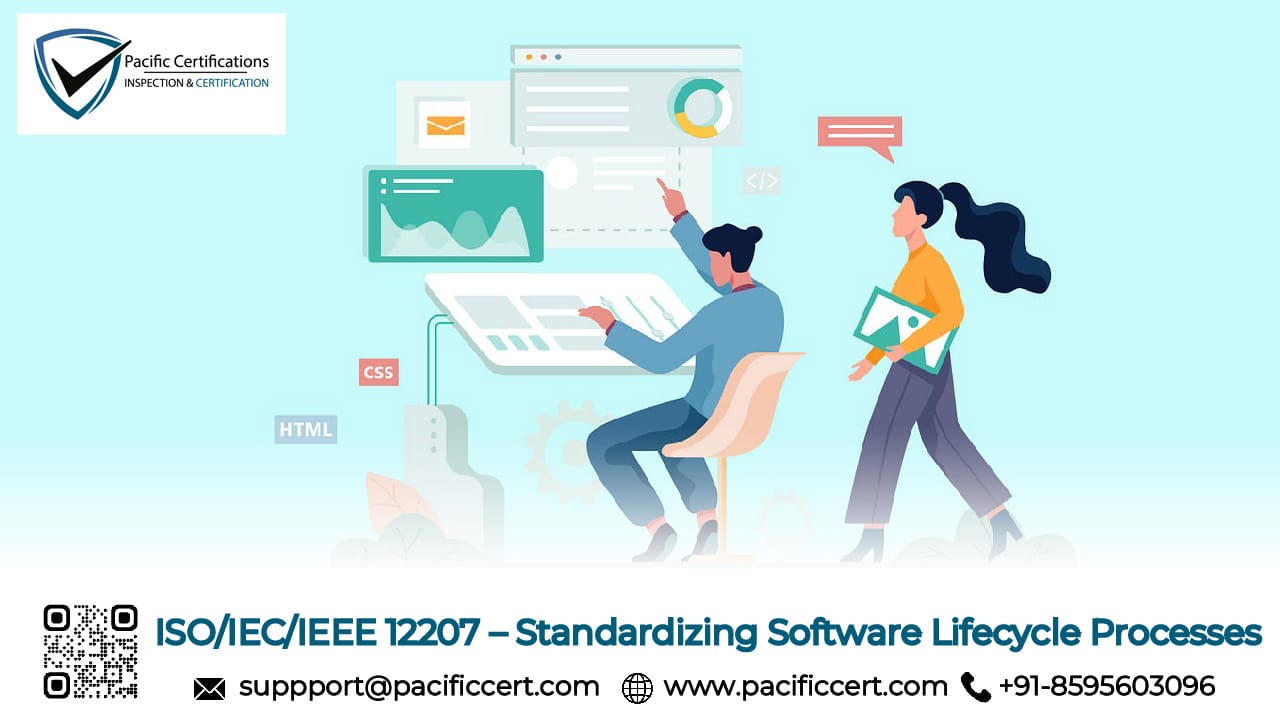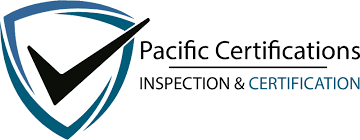ISO/IEC/IEEE 12207: Standardizing Software Development and Lifecycle Management Processes

Introduction
Software systems today underpin everything from banking and aviation to healthcare and defense. Yet, poor lifecycle management still costs organizations billions annually. The Standish Group’s Chaos Report 2023 estimated that nearly 31% of software projects are canceled before completion, and more than half run significantly over budget or schedule. To address these persistent failures, ISO/IEC/IEEE 12207:2017 establishes a globally recognized framework for software lifecycle processes—covering acquisition, development, operation, and maintenance. A new revision, currently under development (DIS 12207:2027), aims to align with Agile, DevOps, and cloud-native paradigms, ensuring the standard remains relevant in modern environments.
ISO/IEC/IEEE 12207 provides the backbone of modern software engineering governance. It ensures that whether you build aerospace software or consumer apps, processes remain auditable, traceable, and aligned with international best practices.
Purpose of ISO/IEC/IEEE 12207:2017
The purpose of ISO 12207 is to create a common structure for all organizations involved in software-intensive systems. It defines:
Primary processes such as acquisition, supply, development, operation, and maintenance
Supporting processes like verification, validation, configuration management, and quality assurance
Organizational processes covering management, training, and continual improvement
This layered approach ensures end-to-end governance, reducing risks of software defects, project overruns, and regulatory non-compliance.
Scope and applicability of ISO/IEC/IEEE 12207
ISO/IEC/IEEE 12207 applies to:
Software developers and vendors building commercial or embedded systems
Regulated industries (e.g., medical devices, aviation, automotive, defense, finance) where failure has high consequences
IT service providers managing enterprise software portfolios
Government and defense agencies requiring structured acquisition processes
The standard can be applied to both waterfall and iterative models. It does not prescribe “how” to code but sets out “what” processes must be in place for traceability, accountability, and quality assurance.
At Pacific Certifications, we can support your organization with ISO/IEC/IEEE 12207. Contact us at [email protected].
ISO/IEC/IEEE 12207 Implementation roadmap
Phase | Key Activity | Duration |
|---|---|---|
1. Scope & Leadership Buy-in | Define which systems, modules, and stakeholder boundaries to cover | 1–2 weeks |
2. Gap Analysis | Map current workflows to 12207 process groups and identify missing controls | 2–3 weeks |
3. Process Design | Create or adapt lifecycle processes (development, configuration, V&V, maintenance) | 4–6 weeks |
4. Documentation & Tools | Build SOPs, templates, workflow integrations, automation | 3–4 weeks |
5. Training & Onboarding | Train teams on roles, compliance expectations, artifacts | 2–3 weeks |
6. Internal Audit & Pilots | Test new processes in a pilot project; record nonconformities and fixes | 2–3 weeks |
7. External / Third-party Review | Optional audit or compliance check for clients or ISO alignment validation | 1–2 weeks |
8. Continuous Monitoring | Metrics, lessons learned, process improvement cycles | Ongoing |
ISO/IEC/IEE 12207 is particularly effective for organizations involved in regulated industries like aerospace, defense, automotive, and healthcare, where compliance and traceability are essential.
Tip: Start with lightweight process tailoring. Instead of adopting all lifecycle processes at once, focus on high-risk areas first—for example, validation and configuration management.
How ISO/IEC/IEEE 12207 helps Streamline Software Development and Maintenance?
Software development doesn’t end at deployment. Maintenance, upgrades, issue resolution, and user support require continuous alignment between engineering, operations, and customer feedback loops. ISO/IEC/IEE 12207 provides repeatable, auditable processes that bring structure and visibility to every phase of the software lifecycle.
Organizations that adopt ISO/IEC/IEE 12207 benefit from:
Improved software quality through structured processes and verification.
Reduced rework and cost overruns with better traceability and requirements control.
Higher customer trust by showing adherence to global standards.
Regulatory readiness in sectors like defense, aviation, and medical software.
Integration with Agile/DevOps by embedding verification, validation, and configuration controls into sprints and pipelines.
Alignment with other standards such as ISO/IEC 15288 (systems engineering), ISO 9001 (quality), and ISO/IEC 27001 (information security).
Market Trends
Global adoption of ISO/IEC/IEEE 12207 is accelerating in regulated industries. The European Union’s AI Act and U.S. FDA software regulations increasingly reference lifecycle standards like 12207. Gartner forecasts that by 2027, 70% of safety-critical software organizations will require ISO 12207 alignment as a supplier condition. Integration with ISO 25010 (software quality), ISO 15288 (systems lifecycle), and ISO/IEC 42001 (AI governance) is also trending, creating holistic digital governance frameworks.
With these advantages, ISO/IEC/IEE 12207 helps reduce the chaos often associated with unstructured development, enabling teams to deliver software faster, more reliably, and with higher quality.
Pacific Certifications supports software companies with gap analysis and ISO/IEC/IEE 12207 -aligned process development. For tailored support, contact [email protected].
ISO/IEC/IEE 12207 vs Agile: Can They Work Together?
A common misconception is that ISO 12207 and Agile are incompatible. In reality, they serve different purposes and can coexist harmoniously within the same organization.
Agile methodologies like Scrum and Kanban focus on iterative development, team autonomy, and flexibility. ISO/IEC 12207, on the other hand, provides a high-level process governance framework that ensures all critical activities—from risk management to documentation—are defined and consistently applied.
In practice:
- Agile addresses how work is performed (daily standups, sprints, user stories).
- ISO/IEC 12207 ensures what is expected of the lifecycle (requirements validation, traceability, audits, handovers).
By tailoring ISO/IEC/IEEE 12207’s process controls to support Agile practices, organizations can balance speed with quality and compliance. For instance, ISO 12207's validation process can be integrated into sprint reviews, while its configuration management aligns well with DevOps version control systems.
Looking to harmonize ISO/IEC/IEEE 12207 with Agile or DevOps? Pacific Certifications can help you map and integrate both approaches for a balanced software development strategy. Reach out to us at [email protected].
ISO/IEC/IEEE 12207 Certification Timeline for Software Organizations
ISO/IEC/IEEE 12207 is a framework and not directly certifiable in the way ISO 9001 or ISO/IEC 27001 are, many organizations choose to align their software life cycle processes with ISO/IEC/IEEE 12207 and undergo third-party audits or internal process validations to demonstrate compliance. After the verification, certificate of compliance is issued because ISO/IEC/IEEE 12207 does not come under accreditation scheme.
The timeline for implementing and aligning with ISO 12207 depends on the size of the organization, current process maturity, and scope of software operations.
Total Estimated Timeline: 3 to 5 months for most mid-sized organizations, faster for startups or pilot implementations.
Pacific Certifications offers structured ISO 12207 compliance audits and external validation services to help software organizations align with the standard efficiently. Reach us at [email protected] to get your certification roadmap!
ISO/IEC/IEEE 12207 and ISO 25010: Building Better Software Products
ISO 12207 defines the process framework for software development, ISO/IEC 25010 offers the quality model to evaluate the final product. Together, they form a powerful toolkit for delivering software that meets performance, usability, and maintainability expectations.
ISO/IEC 25010 defines eight key software product quality characteristics:
- Functional suitability
- Performance efficiency
- Compatibility
- Usability
- Reliability
- Security
- Maintainability
- Portability
By combining ISO 12207 and ISO 25010:
- You ensure that processes are in place to build the software (ISO 12207)
- And you define metrics to evaluate the output (ISO 25010)
For example, using ISO 12207’s validation and verification tasks, teams can directly measure ISO 25010’s criteria like reliability or security during system testing and review cycles.
Pacific Certifications helps organizations adopt integrated software process and quality management approaches using ISO 12207 and ISO 25010. Contact us at [email protected] for advisory and audit services!
ISO/IEC/IEEE 12207 – A Universal Framework for Software Lifecycle Excellence
ISO/IEC/IEEE 12207 is a strategic tool for building high-quality, maintainable, and scalable software systems. It brings structure to complex development environments, fosters accountability, and supports cross-functional alignment throughout the software lifecycle.
Whether you’re building mission-critical systems for defense, rolling out enterprise software, or developing customer-facing applications in an Agile setup, ISO 12207 helps you deliver consistent and trustworthy software.
To explore ISO/IEC/IEEE 12207 compliance for your development team, contact us at [email protected] or visit www.pacificcert.com.
Ready to get ISO/IEC/IEEE 12207 certified?
Contact Pacific Certifications to begin your certification journey today!
Author: Poonam
Suggested Certifications –
ISO 14001:2015
ISO 45001:2018
ISO 22000:2018
ISO 27001:2022
ISO 13485:2016
ISO 50001:2018
Read more: Pacific Blogs

